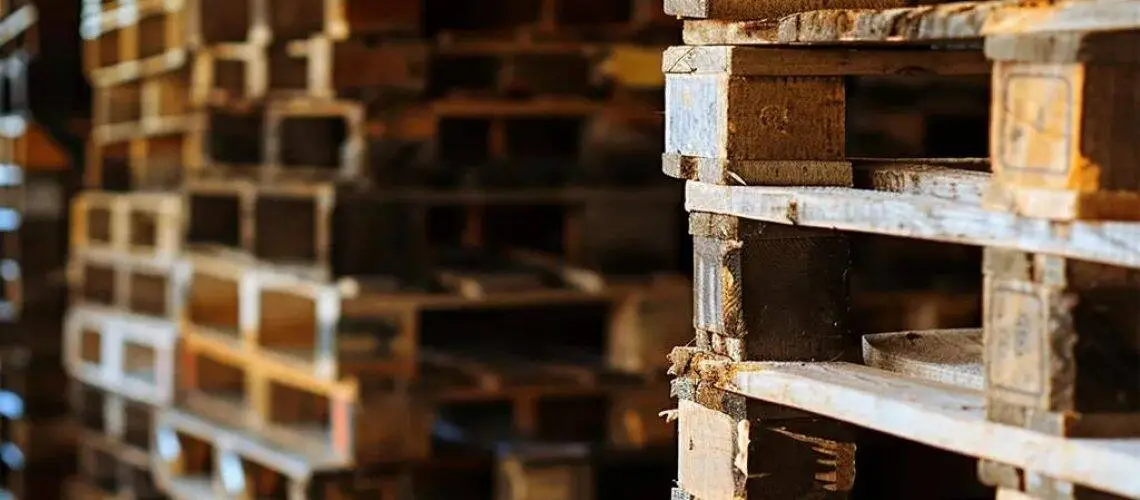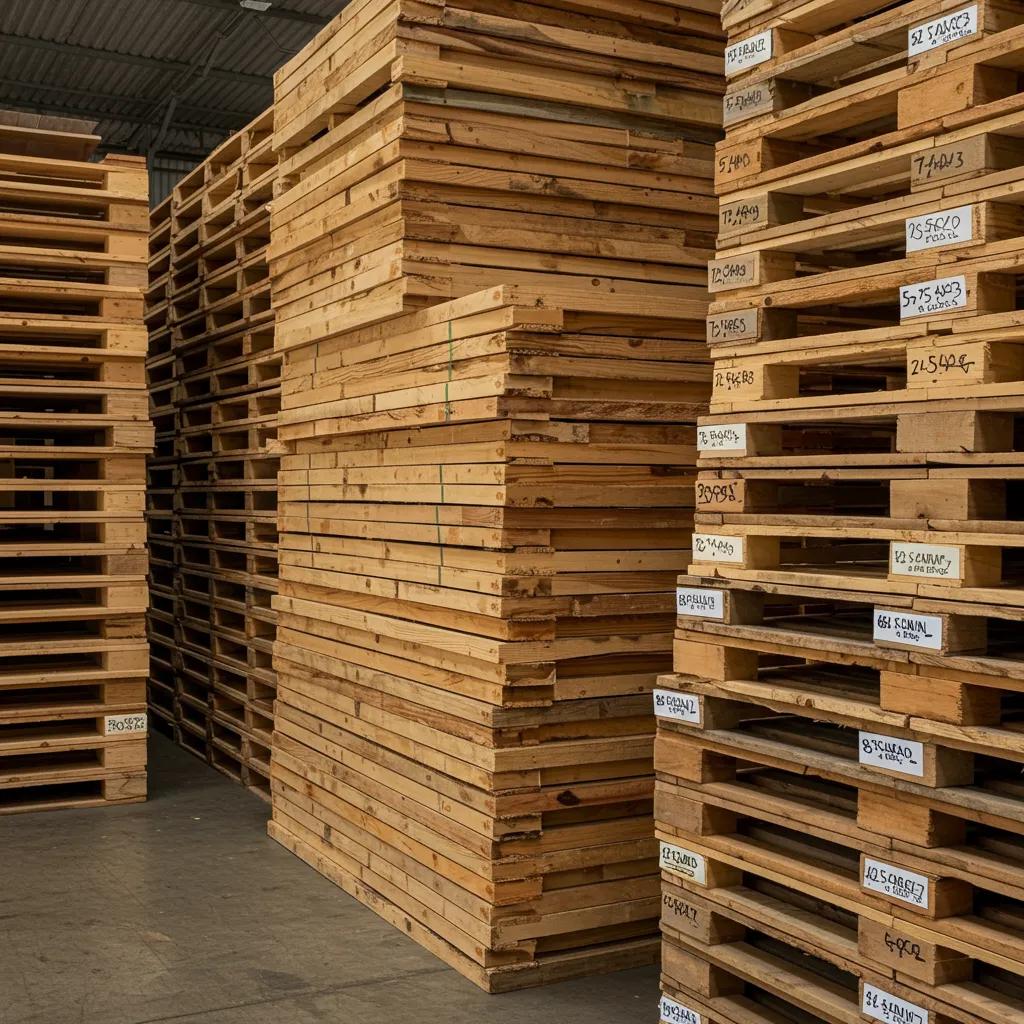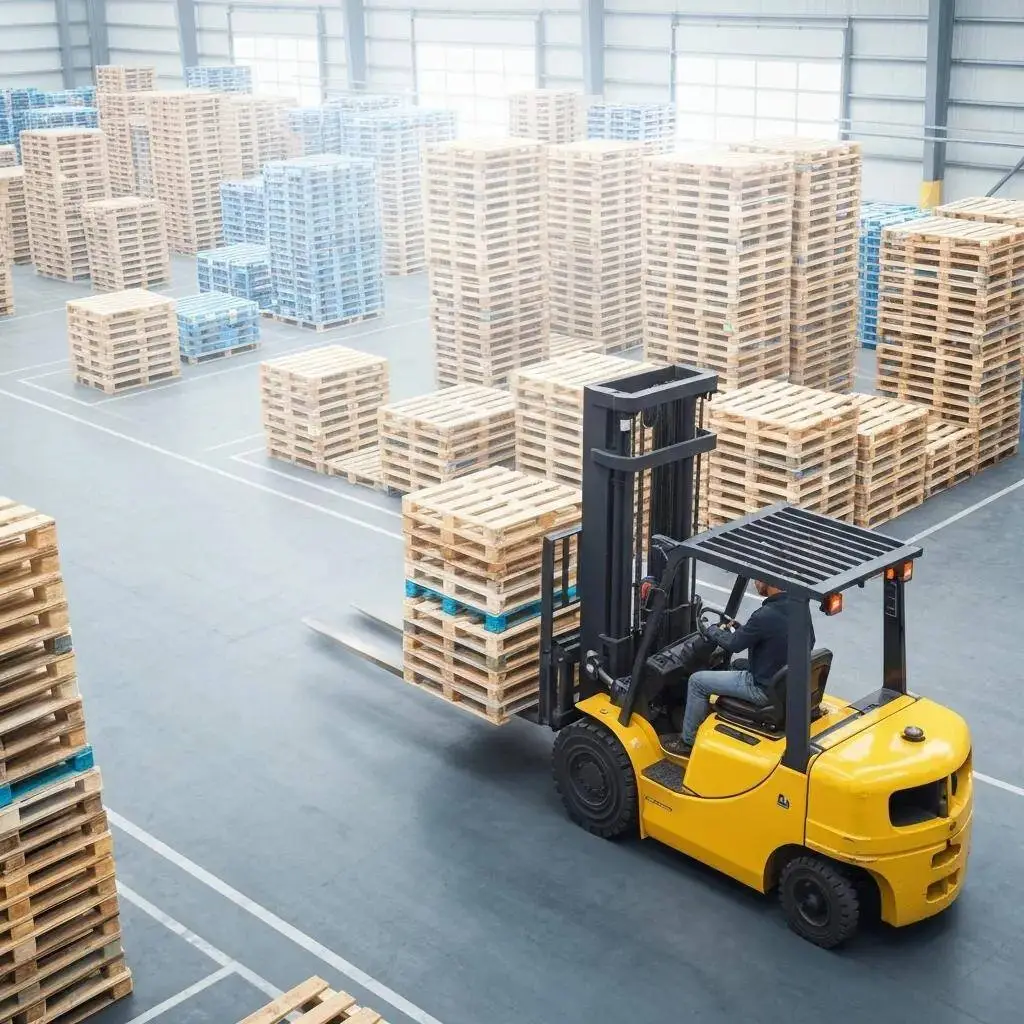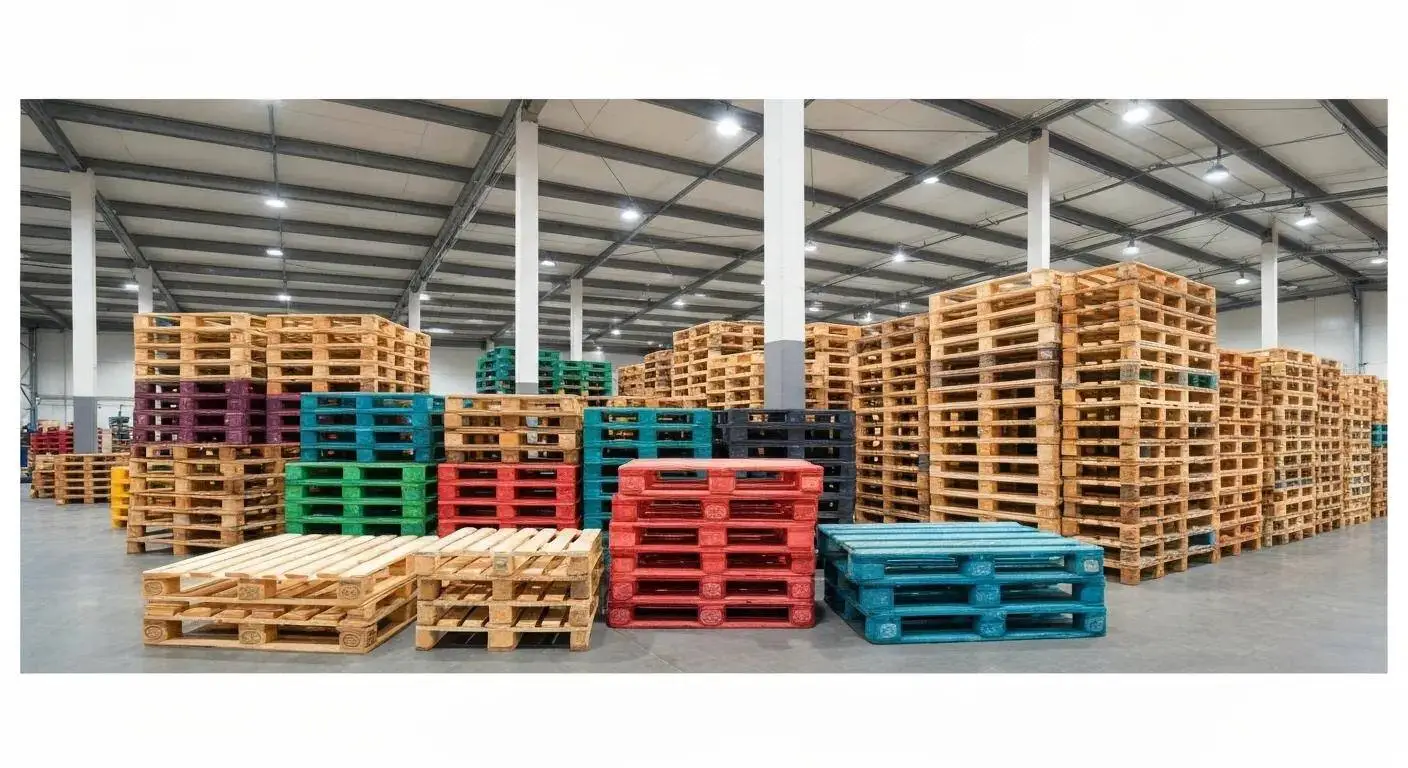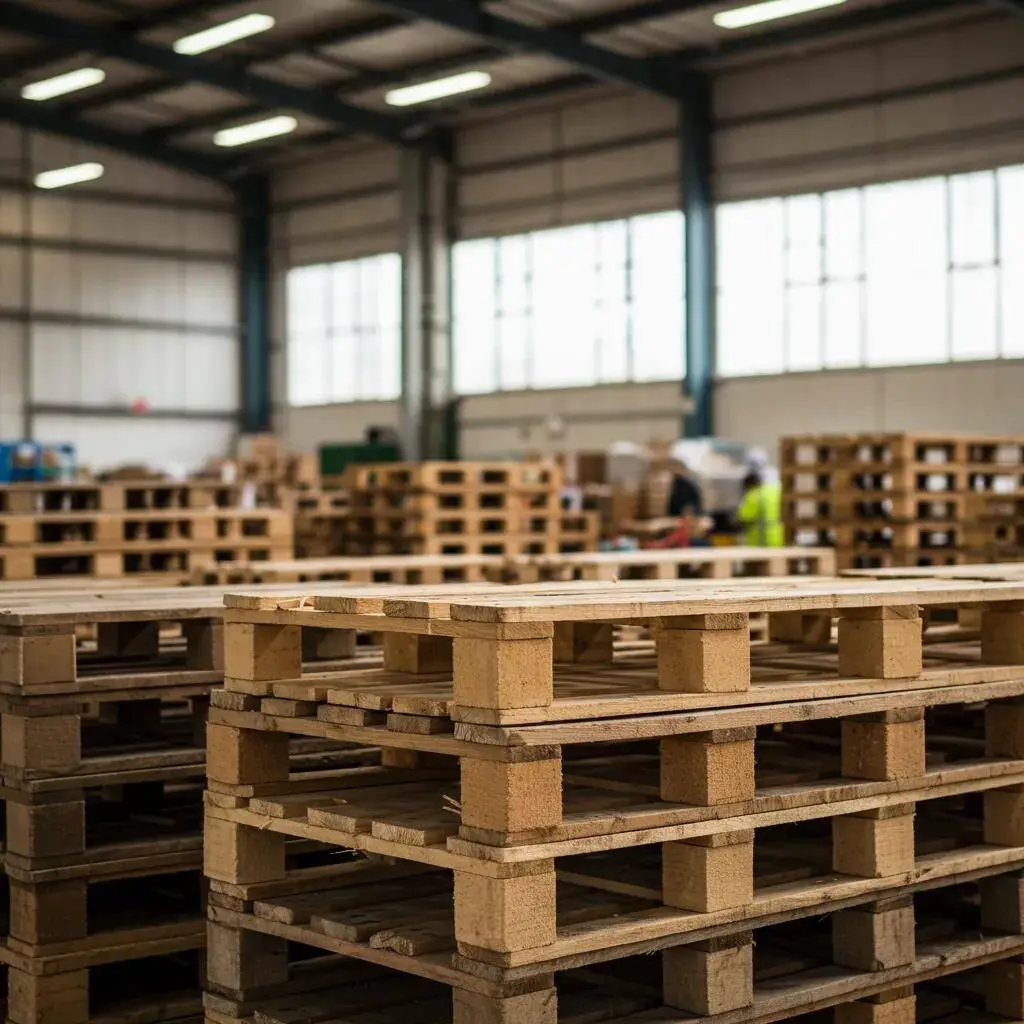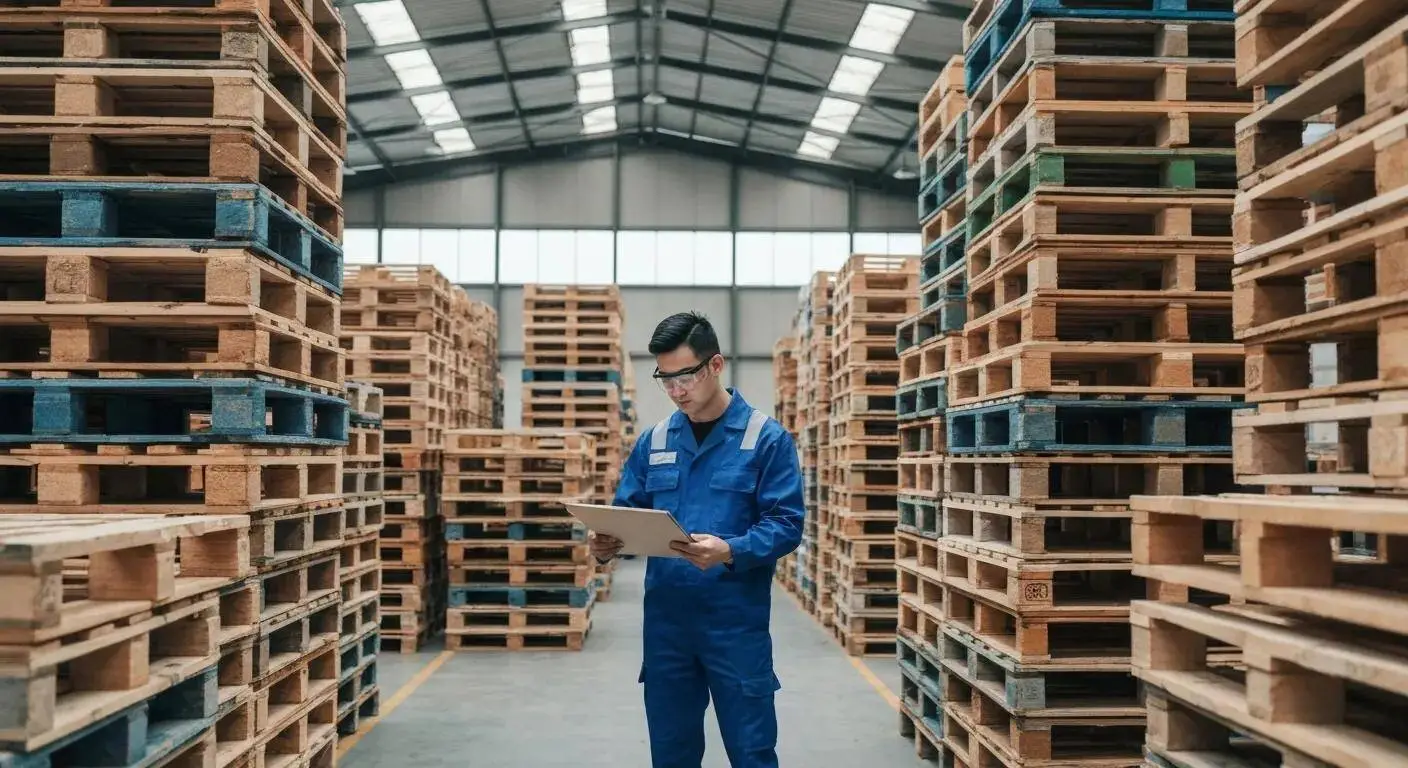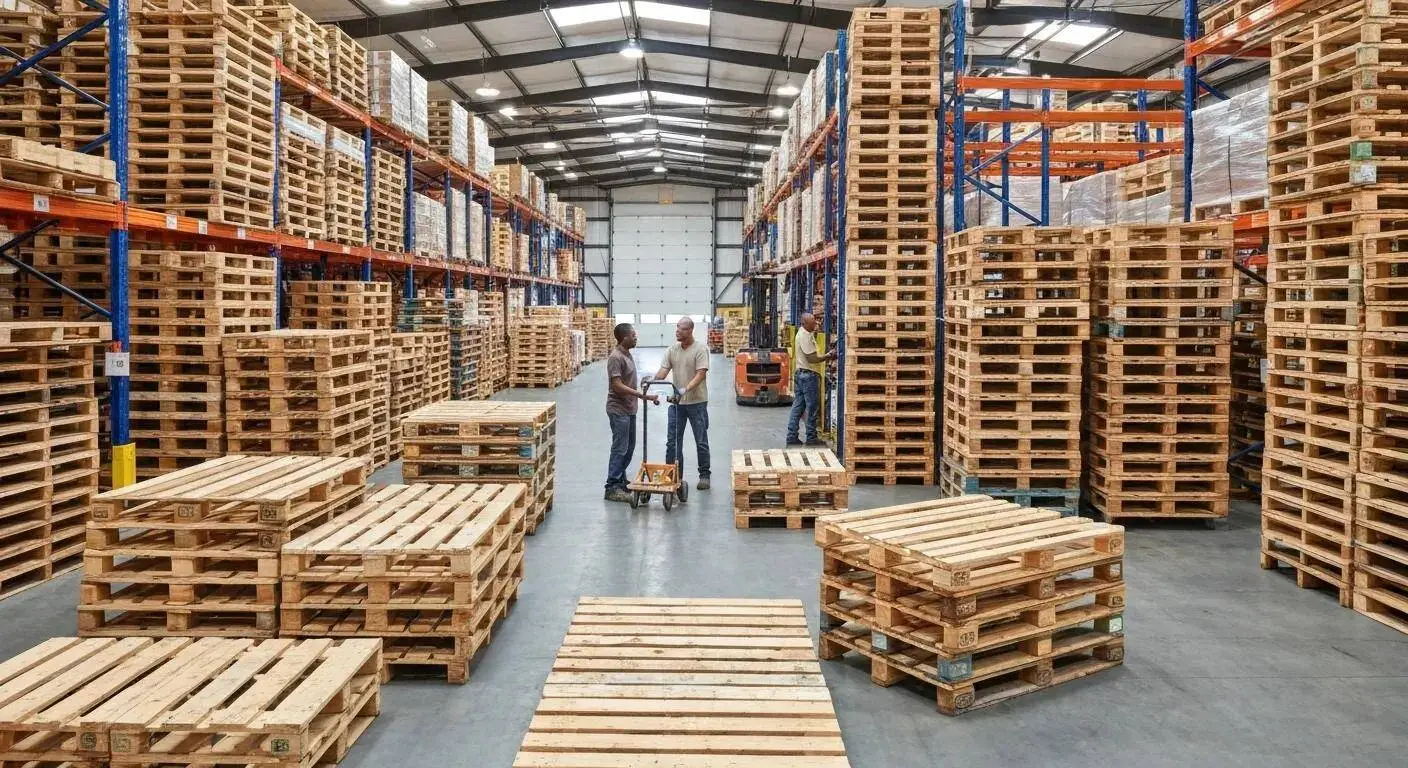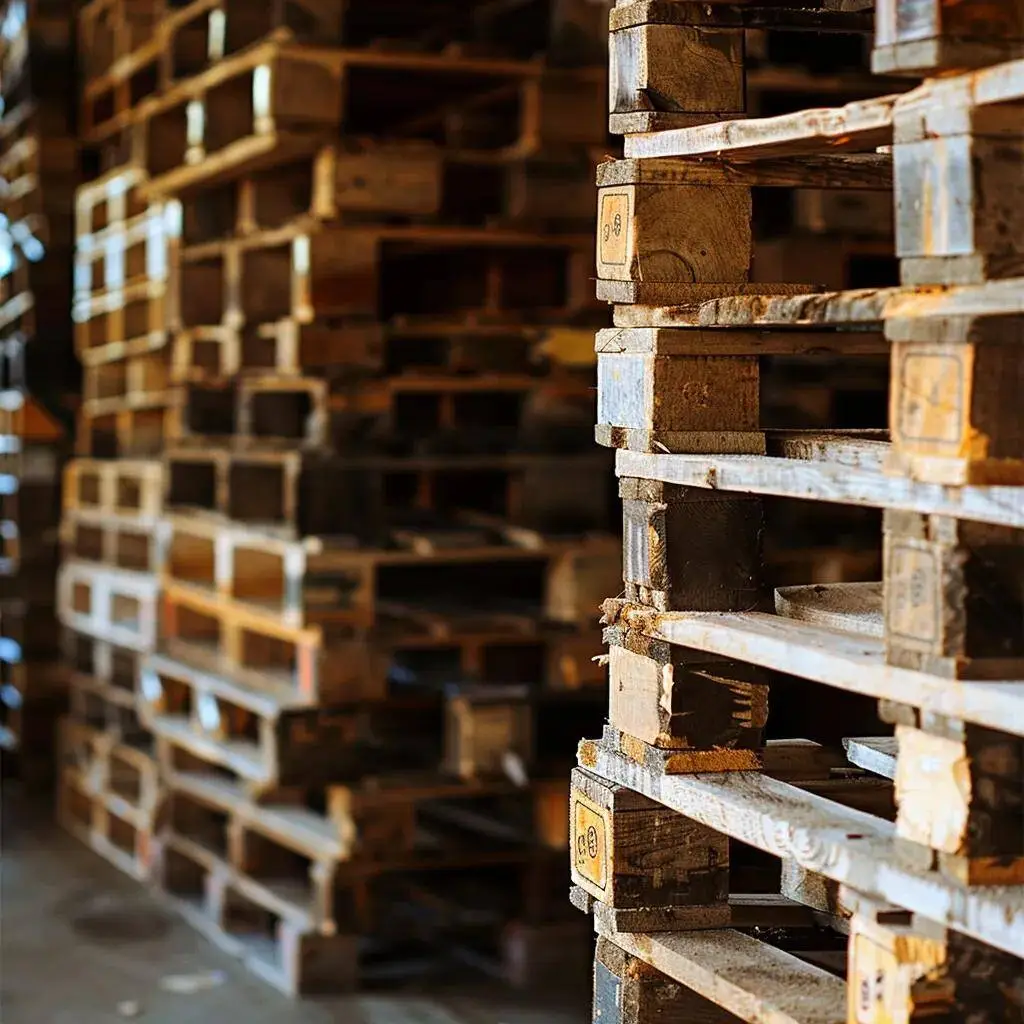
Quality Pallet Solutions for Big Business in Tampa, Plant City, and Lakeland

Every day, logistics professionals in Tampa, Plant City, and Lakeland depend on sturdy pallets to keep supply chains running seamlessly. A single pallet failure can halt production, delay shipments, and inflate costs—WW Pallets prevents those disruptions with industrial-grade pallets and services tailored for Central Florida enterprises. This article explores the full spectrum of pallet solutions at WW Pallets, including new and recycled wood pallets, ISPM-15 heat-treated export pallets, custom sizing, delivery and pickup logistics, recycling programs, industry certifications, sector-specific recommendations, emerging market trends, and common pallet inquiries. Decision-makers will gain a clear roadmap to optimize pallet strategies, ensure compliance, and reduce total handling costs while boosting operational efficiency.
What Types of Quality Pallets Does WW Pallets Offer in Tampa, Plant City, and Lakeland?
WW Pallets provides four core pallet categories—new wooden pallets, recycled and used pallets, ISPM-15 heat-treated pallets, and custom-sized pallets—to meet diverse load capacities, compliance requirements, and budget parameters. By offering this range, WW Pallets supports automated warehousing, export shipping, sustainable reuse and specialized packaging needs across Central Florida. For example, automated distribution centers in Tampa rely on 48×40 GMA new pallets for consistency, while Plant City exporters require ISPM-15 pallets for customs clearance.
| Pallet Type | Attribute | Value |
|---|---|---|
| New Wooden Pallets | Condition | Brand-new, uniform strength |
| Recycled and Used Pallets | Sustainability | Cost-effective, eco-friendly |
| ISPM-15 Heat-Treated Pallets | Certification | Phytosanitary compliance for export |
| Custom-Sized Pallets | Dimensions | Tailored to any specification |
This overview of pallet types sets the stage for a deeper look at each option, starting with new wooden pallets and their industrial advantages.
What Are the Benefits of New Wooden Pallets for Industrial Use?
New wooden pallets deliver consistent strength, precise dimensions, and extended lifespan, making them ideal for high-volume industrial workflows. Manufactured from fresh hardwood or softwood lumber, these pallets maintain uniform load capacities and resist warping, which reduces product damage and downtime.
Key benefits include:
- Structural Integrity – Fresh lumber and quality assembly improve load-bearing capacity.
- Clean Appearance – Pristine surfaces minimize contamination risks in food and pharma facilities.
- Automation Compatibility – Uniform dimensions support robotic handling and rack storage.
Forest Products Laboratory, Wood Handbook (2010)
By choosing new wooden pallets, businesses minimize operational disruptions and protect inventory integrity, guiding us toward how recycled pallets deliver savings without sacrificing performance.
How Do Recycled and Used Pallets Provide Cost-Effective Solutions?
Recycled and used pallets lower material expenses by up to 30 percent while supporting sustainable practices. Every pallet undergoes inspection, repair, and component replacement to restore structural soundness and ensure reliability.
Advantages of recycled pallets include:
- Reduced Capital Outlay – Lower upfront cost compared to new pallets.
- Environmental Impact – Diverts wood waste from landfills and reduces deforestation.
- Rapid Availability – On-hand inventory supports urgent shipping demands.
Cost efficiency and eco benefits make recycled pallets a valuable alternative before exploring export-grade heat-treated options.
Why Choose ISPM-15 Heat Treated Pallets for International Shipping?
ISPM-15 heat-treated pallets ensure phytosanitary compliance by eliminating pests, which is mandatory for most international shipments from the U.S. At WW Pallets’ on-site facility, timber is heated to a core temperature of 56 °C for at least 30 minutes, satisfying global plant protection standards.
Key advantages include:
- Customs Clearance – Expedited inspections and reduced risk of shipment rejection.
- Wide Export Reach – Meets import regulations in North America, Europe, Asia, and beyond.
- Traceable Certification – Licensed stamps and documentation to prove compliance.
International Plant Protection Convention, Guidelines for Regulating Wood Packaging Material in International Trade (2009)
Global compliance achieved, companies can then tailor pallet sizes to fit unique cargo requirements.
How Can Custom Pallet Sizes Meet Your Business Needs?
Custom pallet sizes adapt to non-standard loads, oversized equipment, or specialized packaging, preventing product overhang and improving forklift handling. WW Pallets collaborates with engineering teams to design pallets that meet precise load dimensions, weight capacities, and stacking requirements.
Custom sizing benefits include:
- Optimized Space Utilization – Eliminates wasted warehouse cubic footage.
- Enhanced Safety – Reduces tipping and product damage by matching load footprint.
- Process Efficiency – Streamlines handling by fitting automated conveyors and racks.
Tailored pallets drive cost savings and operational safety, leading into how WW Pallets delivers and retrieves these solutions on demand.
How Does WW Pallets Support Businesses with Reliable Pallet Delivery and Pickup Services?
WW Pallets supports businesses with end-to-end logistics, offering scheduled delivery and on-demand pickup across Central Florida to ensure pallet availability aligns with production schedules. By integrating real-time routing and flexible service windows, clients maintain continuous operations without pallet shortages. This logistics framework underpins all service areas, from Tampa Bay shipments to Plant City recycling runs.
| Region | Service Area | Delivery Window |
|---|---|---|
| Tampa Bay | Hillsborough County, Pinellas County | Next-day / Same-day |
| Plant City & Surroundings | Polk County, Eastern Hillsborough County | 48-hour standard |
| Lakeland & Vicinity | Polk County, Northern Hillsborough County | On-demand scheduling |
Precise coverage planning supports just-in-time inventory strategies and seamless transitions to pickup processes for returning pallets.
What Areas Are Covered by Pallet Delivery in Tampa Bay and Surrounding Regions?
WW Pallets provides pallet delivery throughout Hillsborough and Pinellas counties, including downtown Tampa, St. Petersburg, Clearwater, and neighboring industrial parks. Our fleet operates on fixed daily routes with live-tracking updates to guarantee arrival within the promised delivery window.
This comprehensive service extends to Plant City and Lakeland, ensuring all central Florida manufacturing and distribution centers receive pallets exactly when they’re needed without excess inventory.
How Does Pallet Pickup Work for Plant City and Lakeland Customers?
Pickup requests are as simple as submitting an online form or calling our Plant City office. Technicians inspect the returned pallets, separate usable units from those slated for recycling, and update inventory records in real time.
Pickup process steps:
- Schedule a convenient pickup slot via portal or phone.
- WW Pallets crew collects pallets and conducts on-site grading.
- Usable pallets return to inventory; damaged units enter refurbishment.
Streamlined pickup services support inventory turnover and reinforce sustainable reuse of wood packaging materials.
What Are the Advantages of Localized Pallet Solutions for Central Florida Businesses?
Local presence delivers faster response times, lower freight charges, and personalized account management. WW Pallets’ Plant City headquarters and satellite yards in Tampa Bay and Lakeland enable clients to tap regional expertise and immediate stock availability.
These localized capabilities foster stronger partnerships, improved communication, and reduced lead times compared with out-of-region suppliers, empowering businesses to focus on core operations.
Why Is Pallet Recycling Important for Tampa, Plant City, and Lakeland Businesses?
Pallet recycling transforms end-of-life pallets into reusable wood products, reducing waste disposal costs and conserving natural resources. WW Pallets’ recycling programs close the loop on wood packaging, converting worn pallets into high-grade components or biomass fuel. This approach lowers environmental impact while offering financial incentives for businesses.
How Does WW Pallets Manage Pallet Recycling and Buyback Programs?
WW Pallets purchases used pallets at competitive rates, grades each unit, and routes them through repair, remanufacturing, or material recovery streams. Customers can sell scrap pallets, offsetting new pallet expenses and promoting circular economy practices.
By handling grading, refurbishment, and resale, WW Pallets simplifies asset recovery and ensures maximum material utilization.
What Environmental Benefits Come from Using Recycled Pallets?
Recycled pallets conserve over 1,000 board feet of lumber per 100 units and reduce carbon dioxide emissions associated with new wood processing. Reuse also decreases landfill volume and supports sustainable forestry by lowering demand for virgin timber.
These ecological advantages align with corporate sustainability goals and bolster brand reputation in environmentally conscious markets.
How Can Selling Used Pallets to WW Pallets Benefit Your Business?
Selling used pallets generates immediate revenue, lowers waste hauling fees, and streamlines pallet fleet management. Businesses reclaim floor space by offloading excess or damaged pallets and shift liability for recycling to WW Pallets.
This revenue stream and process efficiency make pallet buyback a strategic asset for cost control and environmental stewardship.
What Are the Industry Standards and Certifications That Ensure Pallet Quality and Compliance?
Industry certifications validate pallet integrity, safety, and regulatory compliance throughout domestic and international supply chains. WW Pallets adheres to recognized standards—including ISPM-15, NWPCA guidelines, and USDA-approved heat treatment protocols—to guarantee every pallet meets or exceeds quality benchmarks.
| Certification / Standard | Purpose | Why Essential |
|---|---|---|
| ISPM-15 | Phytosanitary export regulation | Prevents pest transfer in wood packaging |
| NWPCA Member Guidelines | Quality control and grading system | Ensures consistent strength and safety |
| USDA Heat Treatment Protocols | Verified heat-treatment procedures | Maintains export credibility and traceability |
These certifications anchor WW Pallets’ commitment to compliance and continuous quality improvement.
What Is ISPM-15 Certification and Why Is It Essential for Export Pallets?
ISPM-15 certification requires wood packaging to be heat treated to eliminate insects and pathogens, a prerequisite for many international markets. Compliance reduces quarantine delays, mitigates risk of non-compliance fines, and broadens export opportunities for Tampa Bay and Plant City shippers.
How Does WW Pallets Maintain Quality Through On-Site Heat Treatment?
WW Pallets operates an on-site heat treatment chamber equipped with temperature sensors and automated logging to meet USDA and international guidelines. Real-time monitoring ensures every pallet reaches the required core temperature, and certified stamps verify compliance for each export pallet.
What Other Quality Standards Does WW Pallets Follow for Pallet Manufacturing?
As an NWPCA member, WW Pallets follows strict grading, assembly, and lumber sourcing protocols. Periodic audits and in-house inspections uphold load capacity ratings, dimensional accuracy, and structural integrity across every pallet produced or refurbished.
How Can Businesses Choose the Right Pallet Solutions for Their Industry in Tampa, Plant City, and Lakeland?
Selecting the optimal pallet depends on industry demands, load characteristics, and handling methods. WW Pallets guides clients through a consultative process, matching pallet materials, designs, and services to specific operational requirements—from bulk logistics to sensitive food-grade shipments.
What Pallet Types Are Best for Logistics and Shipping Companies?
Logistics firms prioritize durability, stackability, and compatibility with automated sortation. Block pallets with four-way entry and 48×40 GMA stringer pallets are common choices for high-throughput distribution centers, enhancing loading efficiency and reducing handling time.
How Do Manufacturing Businesses Benefit from Custom and Heavy-Duty Pallets?
Manufacturers handling heavy machinery or dense materials require heavy-duty pallets built with reinforced stringers, thicker deck boards, and higher load ratings. Custom prototypes fit specialty equipment and assembly lines, reducing downtime and improving material flow.
What Pallet Solutions Are Ideal for Food, Beverage, and Export Industries?
Food and beverage operations demand sanitary, kiln-dried wood or plastic pallets to meet FDA standards, while exporters need ISPM-15 stamping for cross-border shipments. WW Pallets’ certified heat treatment and clean-wood programs ensure compliance and protect product integrity from plant to port.
What Are the Latest Trends and Market Insights Affecting Pallet Supply in Central Florida?
Central Florida’s pallet landscape mirrors global shifts: e-commerce growth, material innovations, and digital tracking solutions drive demand for flexible, traceable wood packaging. Understanding these trends helps businesses anticipate capacity needs and invest in future-proof pallet strategies.
How Is the Growing E-Commerce Industry Driving Pallet Demand?
Rapid expansion of online retail has increased pallet throughput by over 15 percent annually, boosting demand for lightweight, rackable pallets that streamline order fulfillment and last-mile delivery in Tampa and Lakeland fulfillment centers.
What Are the Advantages of Wood Pallets Compared to Plastic Alternatives?
| Material | Durability | Cost | Environmental Impact |
|---|---|---|---|
| Wood Pallets | High load capacity | Lower upfront cost | Biodegradable, recyclable |
| Plastic Pallets | Resistant to moisture | Higher cost | Longer lifespan, hygienic |
Wood pallets remain the leading choice for heavy loads and budget-sensitive operations, while plastic pallets excel in washdown and controlled-atmosphere environments.
How Are Advanced Technologies Improving Pallet Tracking and Logistics?
Bluetooth Low Energy sensors, GPS tags, and QR-code integration enable real-time pallet tracking, reducing misplacement rates by up to 40 percent. WW Pallets collaborates with providers to offer Internet-of-Things (IoT) solutions that boost visibility, asset recovery, and route optimization.
What Frequently Asked Questions Do Tampa, Plant City, and Lakeland Businesses Have About Pallet Solutions?
Businesses often seek clarity on selling, recycling, selecting, and handling pallets. Below are concise explanations to common concerns, guiding users toward the right solution for their operations.
Where Can I Sell My Old Wooden Pallets Locally?
WW Pallets’ Plant City yard and satellite locations in Tampa and Lakeland accept used pallets year-round. Sellers schedule drop-off or request a pickup, receive on-site grading, and get paid competitive rates for reusable units.
What Are the Benefits of Pallet Recycling Services?
Recycling services extend pallet life, reduce disposal fees, and support corporate sustainability goals. Repaired pallets return to circulation, while non-repairable wood is repurposed or processed into biomass fuel, minimizing waste.
How Do I Know Which Pallet Type Is Right for My Business?
Assess load weight, handling equipment, storage environment, budget, and compliance needs. WW Pallets’ specialists evaluate these factors to recommend new, recycled, or heat-treated pallets with optimal dimensions and load ratings.
What Is the Process for Pallet Pickup and Delivery?
After an initial consultation, WW Pallets’ logistics team schedules delivery and pickup windows. Drivers drop off new or refurbished pallets, collect returns, and update inventory status—all managed through a real-time online portal for transparency.
How Does ISPM-15 Certification Affect My Shipping Requirements?
ISPM-15 certification removes quarantine holds by ensuring wood pallets are pest-free. Exporters in Plant City and Tampa rely on these certified pallets to move products internationally without customs delays or additional fumigation fees.
By combining diverse pallet options, local logistics expertise, sustainable recycling programs, rigorous certifications, industry-specific guidance, and real-time tracking innovations, WW Pallets empowers Central Florida businesses to enhance operational resilience and reduce total handling costs. Explore custom solutions, schedule delivery or pickup, and request a quote at https://wwpallets.net to secure reliable pallet support across Tampa, Plant City, and Lakeland.

